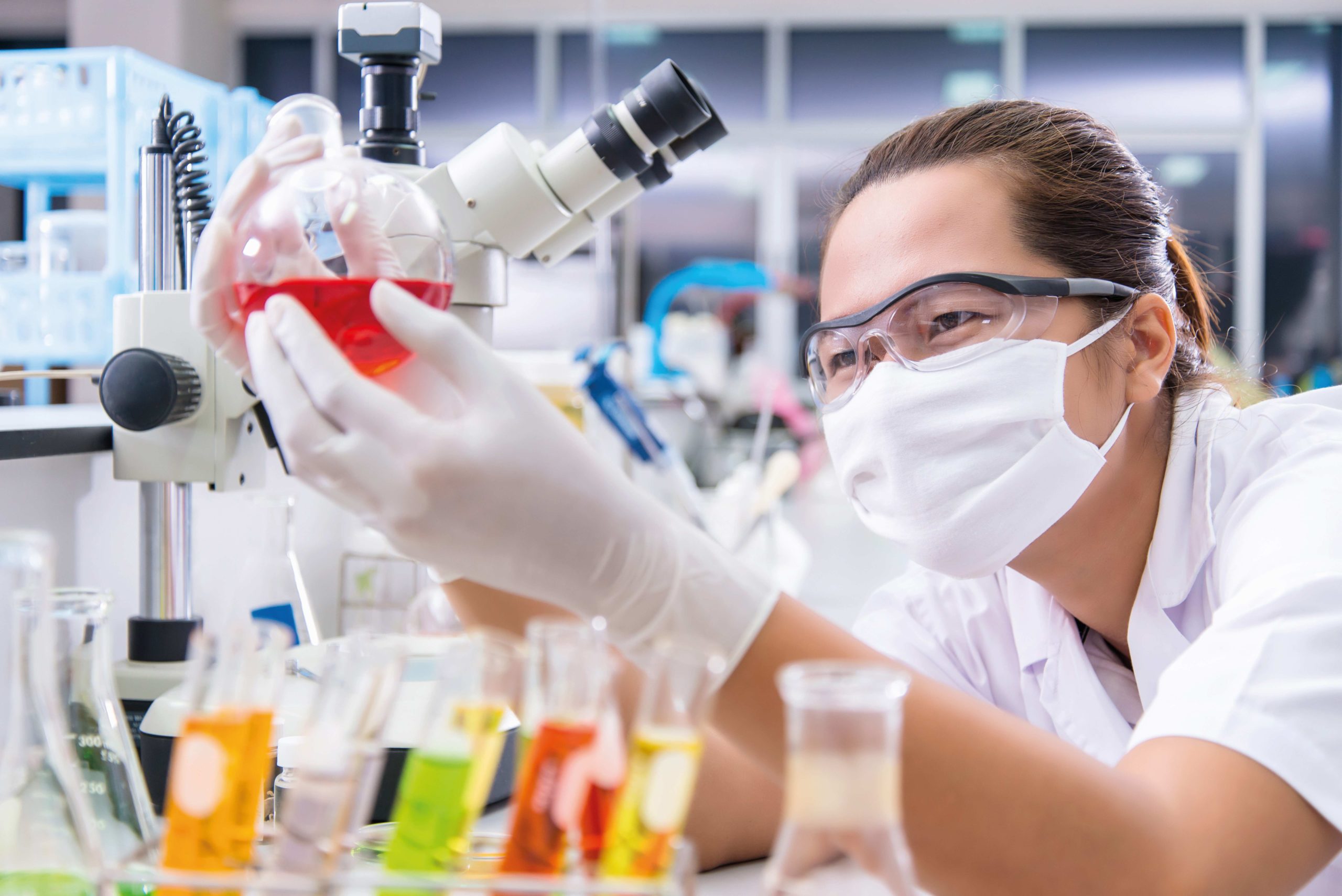Design and Development Major
This major in the engineering cycle provides the skills needed to formulate consumer products in the laboratory: mixing reagents and molecules, assessing appearance, fragrance, color, texture and taste. The goal is to create a product that is both useful and enjoyable for the consumer.

Semesters 8 and 9
During these two semesters, the student-engineers will learn to :
- Organize, implement, optimize and supervise product design, improve existing products
- Ensure a technological and competitive watch in order to be in phase with the market
- Take into account user needs and technical constraints to propose new concepts and products
- Ensure the follow-up of projects until the industrialization phase
Program
Student engineers take 3 courses in their major in addition to the language courses
Semester 8
- Sensory quality and product development**.
- Knowledge and choice of raw materials
- Polymer Chemistry and Formulation
- Accounting
- English
- Modern language 2* (French)
* Spanish, German, Italian, Portuguese, Japanese, Chinese, Arabic, French, TOEFL/IELTS
** Team project course
Semester 9
- Material-Product Interaction
- Reasoned formulation
- Design methods and tools** (in French)
- English
- Modern language 2* (French)
Choice of minors
To enhance their experience and skills, engineering students may freely choose 4 to 10 elective courses from the programs of other majors or from the free program of the following minors:
Semester 8
- Initiation to cosmetics
- Food science** (in French only)
- Health Nutrition
- Sales techniques
- Applied bio-production
- CAD/CAM
- Communication and animation
Semester 9
- Entrepreneurship and innovation
- Sector marketing
- Digital marketing
- Medical devices
- Introduction to Industrial Galenics
- Food safety** (1)
- Carbon footprint
- Eco-toxicology
- Wastewater and drinking water treatment
- Bio-remediation of soils and methanization of waste
- Labour and corporate law
- Advanced modelling
Introduction to Galenics
This minor aims to improve the readability of the galenic development process and to place it in the overall planning of drug development. It also sheds light on the different formulation techniques used, in particular solid forms by addressing granulation, compression and coating through courses and practical work.
Internship at the end of my school program
During their engineering cycle, from 4th to 5th year, engineering students are challenged by high value-added internships, contributing to change within the company. En fonction des besoins de l'entreprise, le stage ingénieur de fin d'études peut s'intégrer dans le cadre d'un contrat de professionnalisation allant jusqu'à 9 mois.
Les élèves parcourent le monde à travers leur stage à l'international pour une durée de 2 à 6 mois.
Further studies
After the EBI, young graduate engineers have several options: enter the professional world or continue their studies.
They can move towards a doctorate, complete their profile by following a 3rd cycle in a business or engineering school, or follow the "Patent and Industrial Property" course.
Main job opportunities
- Product research and development engineer
- Sensory studies engineer
- Packaging engineer
Product Development Engineer
It ensures the design of new products or the improvement of existing products in the laboratory. As a support for innovation, it keeps a technological and competitive watch in order to be always in phase with the market. Its know-how combining user needs and technical constraints allows it to propose new concepts. He defines the parameters to be studied and the different methods of analysis of the new formulas with the teams he supervises. It is present until the industrialization phase. His main contacts are the marketing teams, the project manager, the engineers at the production sites and those responsible for efficiency and safety studies.
Degree obtained
At the end of their specialization, the EBI engineering students who have validated all the required criteria, obtain the engineering diploma of the School of Industrial Biology, accredited by the CTI, Master's degree and recognized by the State.









In the Design and Development major, what I appreciate the most is to concretize the knowledge obtained during the years in the integrated biology preparatory cycle in order to apply it in the engineering cycle. Many projects help to anticipate what is expected in a company, but also to work in groups on what is really important. Being able to choose minors from other majors also helps to develop curiosity and learn more.